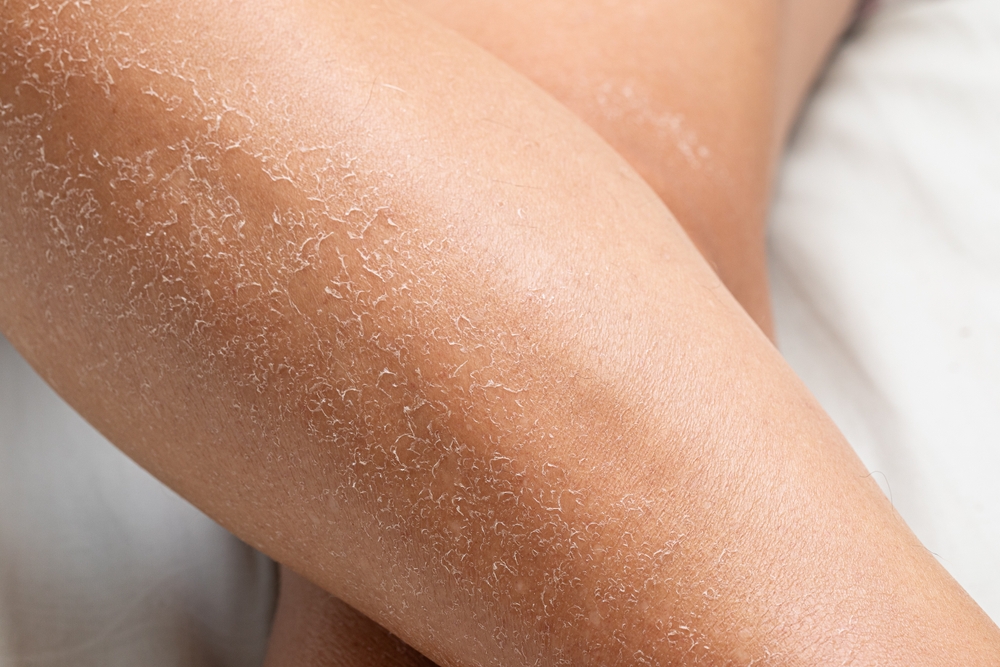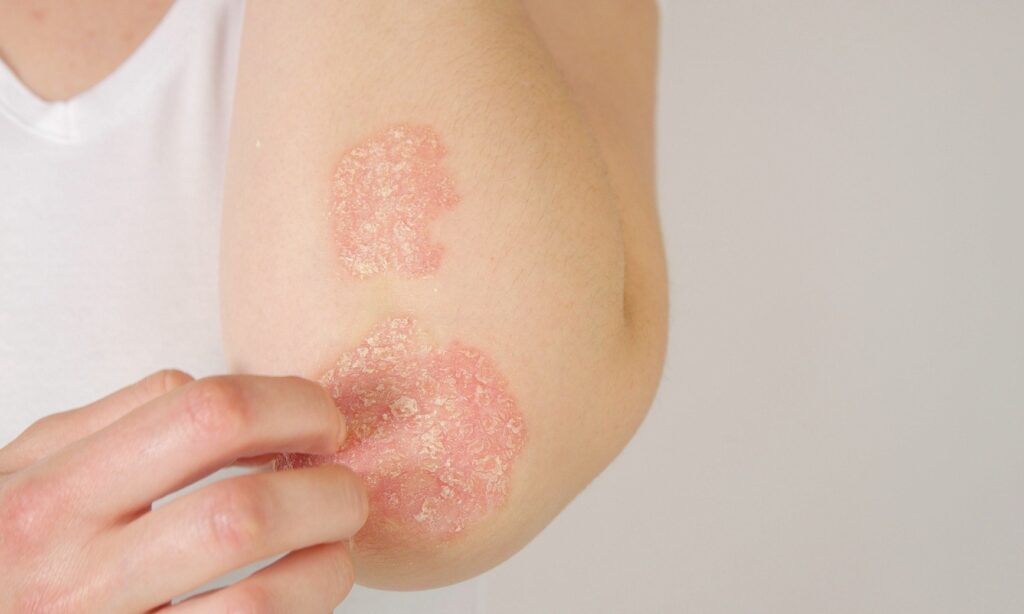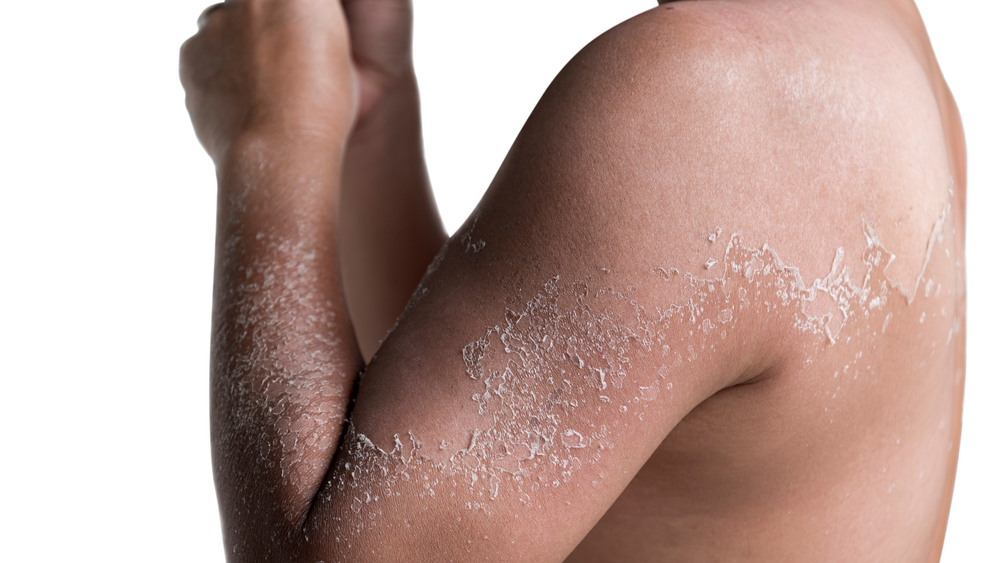2026 Winter Skincare Tips & Advice for Cold Months
The winter months bring changes in air moisture, cold weather, and drier air both inside and outside, which wreak havoc on skin health. Cold air outside and indoor heat contribute to overall dryness, which can lead to cracking, flaking, and dehydrated skin, damage the skin barrier, and flare-ups of skin conditions like eczema, rosacea, psoriasis, and Raynaud’s disease. An excess of dry, dead skin can also contribute to an ashy, dull appearance, further emphasizing signs of natural aging, such as fine lines and wrinkles. When dealing with external environmental stressors that affect skin health, many topical treatment options help keep your skin looking bright, smooth, and clear in the wintertime. To determine the best skincare regimen to combat the effects of winter weather, schedule your consultation with New York-based board-certified dermatologist Dr. Michele Green.
While some aspects of your skincare routine should be maintained year-round (such as applying a broad-spectrum sunscreen every morning!), your skincare products should be updated in the winter months to combat the effects of the winter weather more effectively. The skin on your face and hands is most often exposed to harsh elements, so it requires special care. The dry air in the Winter means you should look for skin care products that boost hydration, infusing and sealing in moisture. Switching to a fragrance-free, hydrating cleanser rather than exfoliating with shea butter, glycerin, and niacinamide is best. Winter moisturizers should be thicker lotions or creams with humectants to hydrate the skin and emollients to seal in the moisture. Even in the Winter, overexposure to the sun’s harmful UVA and UVB rays can cause damage to the skin, so it is still essential to apply a broad-spectrum sunscreen with an SPF of 30 or higher at the start of every day. With winter skincare guidelines, there are still many product options to choose from, which is why it is always best to seek a skincare routine recommendation from an expert dermatologist, such as Dr. Green, who can recommend the products that will work best for your skin.
Experienced board-certified dermatologist Dr. Michele Green has been masterfully treating patients in her Upper East Side, New York City dermatology office for more than 25 years. With her proprietary line of skincare products, MGSKINLABs, Dr. Green can recommend the highest quality lotions, creams, serums, and sunscreens to cleanse, moisturize, and protect the skin year-round. An expert in treating patients of all skin types, whether you have dry, oily, sensitive, or combination skin, Dr. Green will recommend a skincare routine to provide you with smooth, clear, glowing skin even during the winter months. In addition to skincare products, Dr. Green offers a range of anti-aging treatments, including Botox, dermal fillers, laser treatments, chemical peels, microneedling, and more. Well-known for high patient satisfaction, Dr. Green has been voted one of the best healthcare providers in New York City by such publications as Super Doctors, Castle Connolly, and New York Magazine.

What is Winter skin?
Winter skin refers to the common skin issues many people experience during colder months. Characterized by dryness, itchiness, and irritation, winter skin is often caused by low humidity. These conditions strip the skin of its natural oils, which are crucial for maintaining a healthy moisture balance and protecting the skin’s barrier. As the skin loses hydration, it can become flaky, tight, and red, increasing the risk of cracks that may lead to discomfort and potential infection. Factors such as hot showers, which further deplete moisture, and indoor heating systems, which dry out the air, worsen these symptoms. To combat winter skin, adopt a well-rounded skincare routine that includes regular moisturizing, gentle cleansers, and protection from harsh environmental conditions.
Why does Winter make my skin dry?
During the winter months, the air tends to be much drier due to lower humidity, which can lead to a range of skin issues. Cold temperatures and indoor heating further exacerbate this lack of moisture, stripping the skin of its natural oils. As a result, you may notice increased dryness, flakiness, and irritation. In contrast, during the warm summer months, high humidity can be beneficial for the skin. Humidity helps open pores, facilitating better moisture retention and increasing oil production, especially when combined with perspiration. This natural process can contribute to a more hydrated and balanced complexion. Understanding these seasonal changes can help you adjust your skincare routine accordingly to maintain healthy skin year-round.
What to do for skin in Winter
To combat the dryness that often accompanies Winter, it’s advisable to choose gentle cleansers, such as milk, cream, or balm cleansers. These cleansers are formulated to maintain the skin’s natural moisture barrier, unlike clear, gel, or foaming cleansers, which can strip the skin of essential oils and contribute to dryness. After cleansing, it’s essential to apply thick creams or ointments to lock in moisture. Look for products with hydrating ingredients like hyaluronic acid, glycerin, and ceramides. Hyaluronic acid is a naturally occurring substance in our body that can hold up to 1,000 times its weight in water, making it a powerhouse for hydration. Glycerin acts as a humectant, drawing moisture to the skin, while ceramides help restore and maintain the skin’s protective barrier. It may also be beneficial to incorporate gentle exfoliation into your routine to slough off any dead skin cells, which can clog pores and contribute to inflammation and breakouts.
Additionally, incorporating a humidifier into your home during the winter months can significantly benefit your skin. Central heating, commonly used during colder seasons, tends to lower indoor humidity, thereby exacerbating skin dryness. A humidifier can help maintain a more balanced moisture level in the air, ultimately preserving your skin’s hydration and preventing it from becoming dull and flaky. By adopting these practices, you can help your skin stay healthy, hydrated, and glowing throughout the winter season.
How can I take care of my skin in the Winter?
To care for your skin during the winter months, prioritize hydration and moisture. Cold, dry air can strip your skin of its natural moisture, leading to dryness and irritation. To combat this, apply a rich moisturizer daily, focusing on areas that tend to dry out, such as the hands, elbows, and face. Additionally, opt for gentle, hydrating products free of harsh chemicals and fragrances, which can further exacerbate dryness. Look for ingredients like hyaluronic acid, glycerin, and natural oils that help attract and retain moisture. Consider also installing a humidifier in your living space to maintain air moisture levels. By combining these practices, you can keep your skin healthy and radiant throughout the winter season.
How to treat dry winter skin
During the winter months, it is essential to choose moisturizing, hydrating skincare products to combat dry, sensitive skin, especially on the body areas most often exposed to the elements, such as the face and hands. The winter air is already dry, so the first step is to avoid products that strip the skin of moisture and natural oils, such as scented soaps, exfoliating cleansers or scrubs, and topical retinoids. Patients should also avoid long, hot showers during the winter months, as hot water can cause dehydration and reduce natural oils. Patients should adjust their skincare routine in the wintertime to include hydrating cleansers, thick, creamy moisturizers, hand cream, and SPF 30 or higher sunscreen to protect against harmful UV rays. Staying hydrated, reducing alcohol intake, and consuming foods rich in antioxidants and fatty acids can further help keep the skin smooth, bright, and healthy during the Winter.
How to change your skincare routine for Winter
During the winter months, cold temperatures and low humidity can significantly contribute to skin dryness. Harsh, cold weather strips the skin of its natural moisture. At the same time, indoor heating systems further exacerbate the problem by creating a dry environment that draws moisture from the skin. To combat these drying effects, it’s essential to adjust your skincare routine. It can be good to incorporate a hydrating serum after cleansing. In particular, consider switching to a richer, thicker moisturizer that delivers deep hydration. Applying this moisturizer primarily at night can help replenish your skin’s moisture barrier while you sleep, allowing your skin to rejuvenate effectively. Look for ingredients such as hyaluronic acid, glycerin, or ceramides, which help attract and retain moisture.
Additionally, if you’re struggling with dry skin in the Winter, it’s advisable to choose a milky cleanser over a clear gel cleanser. Milky cleansers are typically gentler on the skin, cleansing effectively while minimizing the risk of stripping essential oils. In contrast, clear gel cleansers can be overly astringent, leaving the skin tight and parched. By choosing the right products and adjusting your routine, you can nurture your skin and maintain its health, even in the coldest months. If you’re dealing with chapped lips during the Winter months, it is also best to incorporate a lip balm to prevent further cracking.
What is the best cleanser for dry skin?
When choosing a cleanser for the Winter, it is essential to find a hydrating product rather than an exfoliating one. As the air is dry in Winter, it is important to use skincare products to hydrate the skin. Avoid cleansers that are scented or that contain alcohol, as these ingredients can further dry out and irritate the skin. Instead, cleansers labeled “fragrance-free,” “gentle,” or “moisturizing” are the best to use in the Winter. For the face, look for products that contain hydrating ingredients, such as shea butter, glycerin, and niacinamide, to help achieve smooth, bright skin. A cleanser is also necessary for washing your body, and patients should look for creamy, fragrance-free body washes to use in lukewarm rather than hot showers. For patients susceptible to eczema, washing hands with regular soap can dry out the skin, leading to itchy, inflamed patches. As such, patients with eczema can turn to moisturizing cleansers to wash their hands, seeking brands like Cetaphil and Aquanil, as well as ingredients such as shea butter and silicone.
What is the best dermatologist-recommended SPF 30 sunscreen?
In the Winter, we tend to forget the importance of sun protection when not spending our days on the beach or in the park. However, sunscreen is just as essential in Winter as in spring and summer. UV rays from the sun and glare from bright snow can still damage the skin and increase the risk of skin cancer in Winter, further drying it out and accentuating signs of aging, such as fine lines and wrinkles. As such, it is essential to wear sunscreen year-round, even in Winter. The type of sunscreen worn can be adjusted during the winter months. Instead of light lotions or sprays, patients can turn to creamier sunscreens that moisturize the skin and protect against UVA and UVB rays. For a powerful sunscreen that protects the skin without leaving a greasy feeling, patients can turn to MGSKINLAB Hydrating Sunscreen SPF 50. This sunscreen locks in moisture to keep the skin looking smooth and bright. It is formulated with humectants, such as hyaluronic acid, to hydrate the skin, and with caffeine, which has antioxidant properties. Dr. Green recommends that patients apply this sunscreen 30 minutes before going outside and reapply every 2 hours while in the sun.

How to do skincare in Winter?
Maintaining your skincare routine during the winter months should not stray too far from your usual practices. However, it is essential to add extra moisture to combat the dry, cold air that can strip your skin of hydration. One effective way to enhance your routine is to add humectants, which draw moisture from the environment into your skin. Look for products containing glycerin, hyaluronic acid, or aloe vera, as they can significantly boost your skin’s hydration. Additionally, consider using a thicker moisturizer or an oil-based serum to lock in moisture and create a protective barrier against the harsh winter elements. Don’t forget to exfoliate regularly to remove dead skin cells, allowing your hydrating products to penetrate more effectively.
Good skincare for Winter
Cleanser: To maintain your skin’s natural moisture, consider replacing traditional foaming cleansers with cream- or oil-based alternatives. Foaming cleansers can strip away essential oils, which is especially harmful during colder months when your skin is already vulnerable to dryness. When selecting a cleanser, look for hydrating ingredients such as glycerin, which helps retain moisture and soften the skin. Dr. Green has formulated her own skincare routine, and a great cleanser is MGSkinLabs gentle lipid-free facial cleanser for all skin types, which would be great for the Winter.
Hydration: Incorporate serums with hyaluronic acid and niacinamide into your skincare routine. Hyaluronic acid is a powerful humectant that draws moisture from the environment into the skin. At the same time, niacinamide helps improve skin elasticity, enhance the barrier function, and reduce redness and blotchiness. After applying your serum, follow up with a moisturizer rich in ceramides, shea butter, or squalane. These ingredients fortify the skin barrier, providing a protective shield against environmental stressors and preventing moisture loss. Dr. Green recommends her AM/PM serum duo to hydrate and rejuvenate the skin.
Moisturizer: In winter months, it’s ideal to opt for a thicker, cream-based moisturizer. These formulations not only provide intense hydration but also create a protective layer over the skin, locking in moisture and shielding it from harsh, cold air. Look for cream moisturizers that contain occlusive ingredients to seal in hydration and keep your skin feeling supple and healthy. Dr. Green has formulated a thick moisturizer, Absolute Recovery Cream, that would be a great choice for Winter.
SPF: Even though winter days may be cloudy, it’s crucial to apply a broad-spectrum sunscreen with an SPF of 30 or higher every day. UV rays can still penetrate clouds and reflect off snow, so your skin is at risk of damage if not adequately protected. Incorporating sunscreen into your daily routine helps prevent premature aging and keeps your skin looking radiant year-round. By enhancing your skincare routine with these tailored products and practices, you can better protect and nourish your skin through the winter months. Dr. Green recommends her Hydrating SPF 50, which provides both physical and chemical sun protection.
What is the best moisturizer for winter dry skin?
During the winter months, patients should use a rich, creamy moisturizer to hydrate the skin and protect the skin barrier from the cold, dry environment. In the summer, Dr. Green often recommends a thinner, lighter lotion to balance the humidity. However, a light lotion will not provide sufficient protection from the dry air in the Winter. When looking for the best moisturizer for the dryness in the winter air, it is essential to look for three main categories of ingredients: humectants, such as ceramides, glycerin, jojoba oil, and hyaluronic acid, that draw in moisture to hydrate the skin; sealing ingredients, such as silicone, mineral oil, and petrolatum, that trap moisture in the skin; and emollients, such as linoleic acid and lauric acid, that seep into cracks to smooth the skin. For the most part, during the Winter, it is important to avoid harsh exfoliating scrubs or other products that can further irritate the skin. However, patients can turn to a moisturizer containing lactic acid, which gently promotes skin cell turnover while still moisturizing. When choosing a moisturizer for the Winter, Dr. Green recommends the MGSKINLAB Intensive Skin Repair Lotion, which contains hydrating ingredients such as Jojoba oil, shea butter, and aloe vera.
Dr. Green recommends applying moisturizer to your face and body while your skin is still damp after a shower to help trap moisture. When choosing a body moisturizer, look for heavier, creamier products than those for the face, containing ingredients such as shea butter, glycerin, and petrolatum. The skin on the face is thinner than on other parts of the body, so a lighter formulation is necessary.
What is the best winter skincare routine?
The best winter skincare routine includes a cleanser, moisturizer, and sunscreen to hydrate the skin and combat the effects of cold weather and dry air. A fragrance-free, gentle cleanser containing shea butter, petrolatum, and silicone should be gently massaged into the face once in the morning and once at night to remove excess oil, dirt, makeup, and other debris. A moisturizing cleanser can also be used to wash hands throughout the day, as a non-soap product will clean the skin without drying it out, which hands are particularly prone to in the Winter. Typically, it is best to avoid toners, heavy makeup, and products that dry out the skin during the winter months, such as topical retinoids. A rich moisturizer should be applied twice a day, especially in the Winter, to attract moisture and seal it into the skin. Dr. Green recommends looking for a moisturizer that contains hydrating products such as hyaluronic acid, jojoba oil, glycerin, and ceramides. Finally, at the start of every day, patients should apply a rich, hydrating SPF 30 sunscreen to protect against sun damage.
Will a humidifier help with dry skin in the Winter?
In addition to dry air outside, indoor heating can create dryness, stripping the skin of its natural oils and causing cracks, irritation, and flaking. A humidifier is a device that releases moisture into indoor air to reduce dryness in your home. A humidifier set to 60% can significantly reduce dry skin during the winter months, helping the skin to retain moisture indoors. If your house has a radiator, you can also increase the air’s moisture by placing a bowl of water on it, which releases water vapor into the air.
Winter skin care tips from a board-certified dermatologist
In addition to finding skincare products that will hydrate and moisturize the skin, there are several lifestyle choices that patients can make to help with dry winter skin and improve their complexion:
- Take lukewarm showers instead of hot showers. As tempting as a hot shower can be, hot water can strip the skin of its natural oils and dry it out.
- Stay hydrated. Increasing your water intake can help reduce dry skin during Winter. You can increase hydration by limiting the consumption of alcohol.
- Avoid scented soaps and skincare products that can irritate and dry out the skin. Instead, choose a moisturizing cleanser and body wash for the hands and body.
- Switch to moisturizing cleansers containing shea butter, glycerin, and niacinamide ingredients.
- Moisturize often with a thick lotion or cream to combat dryness from indoor and outdoor air. Look for products with humectants like hyaluronic acid and ceramides, and emollients like linoleic and linolenic acids.
- Always apply sunscreen before going outside. Even in Winter, UV rays can cause skin damage.
- Apply hydrating lip balm with SPF protection to keep the lips hydrated throughout the day and protect against sun damage.
Winter skincare FAQs
Why does Winter cause dry skin?
During the winter months, many people experience dry skin, primarily due to low humidity and indoor heating. Cold air holds less moisture, leading to a significant drop in humidity. When we stay indoors, especially with heating systems running, the air becomes even drier, further stripping the skin of its natural moisture. As a result, this lack of hydration can leave the skin flaky, itchy, and irritated. To combat these effects, it’s essential to incorporate moisturizing creams and regular hydration into our daily routines and consider using humidifiers to add moisture back into the air.
Can dry skin in Winter cause acne?
Yes, dry skin can indeed lead to acne. When the skin becomes excessively dry, the oil glands overproduce sebum, a compensatory mechanism. This overproduction can clog pores, leading to acne. Additionally, dry skin often results in flakiness, which can be unsightly and contribute to pore blockage. To effectively manage dry skin and its link to acne, it’s important to maintain a consistent skincare routine. Start with a gentle cleanser that removes impurities, dirt, and excess oil without stripping the skin of its natural moisture. After cleansing, incorporate a gentle exfoliation step to remove dead skin cells that accumulate on the surface. Look for mild exfoliants suitable for delicate skin, such as those containing alpha-hydroxy acids (AHAs) or beta-hydroxy acids (BHAs). Finally, follow up with a nourishing moisturizer to rehydrate the skin and maintain its barrier function. If you are experiencing an increase in acne breakouts, it is best to consult a board-certified dermatologist to treat the acne and avoid the risk of acne scarring, which is often more complex to treat than acne itself.
Can Winter cause a skin rash?
During the colder months, cold, dry air and low humidity can significantly affect our skin. Indoor heating systems, commonly used to stay warm, further worsen the problem by stripping moisture from the air and, consequently, from the skin. This moisture loss can lead to a variety of skin issues, including dryness, redness, and itchiness, commonly referred to as winter rash. Winter rash is characterized by rough, flaky patches that often appear on areas of the body frequently exposed to the elements, such as the hands, arms, and legs. It can also trigger or worsen existing skin conditions, such as eczema and psoriasis, making symptoms more pronounced. Individuals with winter rash may notice several telltale signs, including redness, scaling, small bumps, blisters, and a persistent urge to itch. To mitigate these effects, it’s important to adopt a skincare routine that emphasizes hydration and protection against the elements. Applying moisturizers regularly, using a humidifier indoors, and wearing protective clothing can help safeguard the skin during the harsh winter months. If needed, your board-certified dermatologist can prescribe a topical steroid. If you are experiencing irritation, flaking, and discomfort, it is best to consult your board-certified dermatologist, such as Dr. Green.
Why does my skin itch in the Winter?
During the winter months, moisture levels in outdoor air drop drastically, and cold air can stress the skin. Indoor heating systems also dry out the air, leaving no respite from dryness and stripping the skin of natural oils and moisture. Dry skin, also known as xerosis, can cause cracking, irritation, stinging, redness, flaking, and itching. Patients with itchy skin due to xerosis from dry winter air should be advised not to scratch, as this can worsen the condition. To relieve itchiness, patients can apply a cold compress to the area to numb the sensation. To prevent itchy skin, keep the skin moisturized with a hydrating cleanser and rich lotions or creams. Moisturizers can reduce dry skin symptoms and repair the skin barrier, resulting in smooth, clear skin.

Why does my skin break out in the Winter?
Acne breakouts are among the most common skin conditions in the United States, affecting as many as 50 million Americans yearly. Most people think of acne breakouts as affecting teenagers during puberty. However, breakouts can occur even as adults and are more common in the Winter. In 2015, researchers in New England found that the frequency of moderate-to-severe acne increased by 11% in Winter. Acne breakouts occur when the pores on the skin’s surface are clogged by excess sebum, the natural oil produced on the skin, dead skin cells, and other debris. In the Winter, dry air can cause the skin to dry out, triggering the overproduction of sebum and excess oil on the skin’s surface. The best way to prevent winter breakouts is to keep the skin hydrated.
Why does my skin crack in Winter?
During wintertime, humidity levels are much lower, making the air dry, and the cold air can be harsh on the skin. When exposed to this cold, dry air, skin can lose moisture and natural oils, leading to rough, flaky, itchy, irritated, and cracked skin. This condition, characterized by dry, rough skin, is known as xerosis and is most common in the winter months.
Why in Winter does my skin get dry?
The skin’s surface comprises the outer layer of skin, known as the epidermis, protected by the skin barrier, a thin layer of lipids, and dead skin cells. The skin barrier helps to keep the skin looking smooth, bright, and hydrated. Still, it can be easily damaged by environmental factors such as sun exposure, natural aging, and dry air. When the skin barrier loses moisture, the skin appears dry, cracked, and dull.
How to combat dry winter skin
The best way to combat dry winter skin is to choose skincare products that moisturize and hydrate the skin for a smooth, clear, bright appearance all Winter. With many options, it can be challenging to determine which skincare products are right for you. That is why an excellent first step in developing your winter skincare routine is to schedule a consultation with expert, board-certified dermatologist Dr. Michele Green. Dr. Green will begin by examining your skin to determine your skin type, then recommend products to help keep your skin healthy all Winter. Whether you have dry, oily, sensitive, or combination skin, Dr. Green knows the products and treatment options that will be best for you.
How to treat dry skin in Winter at home
There are several ways to treat dry winter skin at home, including choosing suitable cleansers, hand creams, and moisturizers to keep your skin hydrated. Most winter skincare products work best when applied regularly, first thing in the morning and before bed. To protect your hands, choose a gentle cleanser rather than scented hand soap, which will help keep the delicate skin on your hands moisturized and protected from cracking and irritation. Furthermore, to regulate the moisture levels in your home, you can purchase a humidifier. Humidifiers help combat dryness by adding moisture to the air, protecting you from the harmful effects of dry indoor air.
What is good for skin in the Winter?
To care for winter skin, choose rich, thick moisturizers with beneficial ingredients such as ceramides, hyaluronic acid, or shea butter. These ingredients help restore and maintain the skin’s natural moisture barrier, providing deep hydration and reducing dryness. In addition to choosing the right moisturizers, limit hot showers, as hot water strips the skin of its natural oils and worsens dryness. Instead, use lukewarm water and keep showers brief. Using a humidifier at home can also make a significant difference by adding moisture to the air and helping keep your skin hydrated during the dry winter months. Moreover, protect your skin from harsh winter conditions. Wearing sunscreen is crucial, as UV rays can still damage the skin even on cloudy days. Additionally, shielding your extremities with warm gloves and applying a nourishing lip balm will help prevent chapping and maintain overall skin health in cold, dry air. By adopting these practices, you can keep your skin soft, hydrated, and healthy throughout the winter season.

How to take care of your skin in Winter – get started today.
As winter approaches, finding a skincare routine to keep your skin hydrated throughout the arid months is essential. Both inside and outside, air moisture levels decrease during the wintertime, which can strip the skin of moisture and natural oils, leading to dry, cracked, flaky, and irritated skin. To combat dry winter skin, patients should look for hydrating cleansers, thick moisturizing lotions, and creamy sunscreens to attract and seal in moisture. It is best to avoid skincare products and activities that can further irritate and dry out the skin, such as scented soaps, harsh scrubs and exfoliates, and hot showers. With so many treatment options available, choosing skincare products that will be best for you during the cold winter months can be overwhelming. Luckily, experienced board-certified dermatologist Dr. Michele Green is an expert at creating individualized skincare regimens to meet each patient’s unique needs.
Dr. Green is an internationally renowned board-certified dermatologist with over two and a half decades of experience providing some of the world’s most discerning individuals with the best cosmetic dermatology has to offer, including personalized skincare routines. Dr. Green takes a holistic approach and embraces a less-is-more philosophy regarding facial rejuvenation and skincare, working with each patient to develop a perfect plan for their skin type. She is consistently voted as one of New York’s best dermatologists by Super Doctors, Castle Connolly, New York Magazine, and the New York Times for her dedication to her patients and expertise. Please call us at 212-535-3088 or contact our New York City-based office today to schedule a consultation with Dr. Michele Green and improve your winter skincare routine to achieve a healthy, radiant complexion year-round.
 212-535-3088
212-535-3088 